The power of Hydro loyalty and data flows
- Published
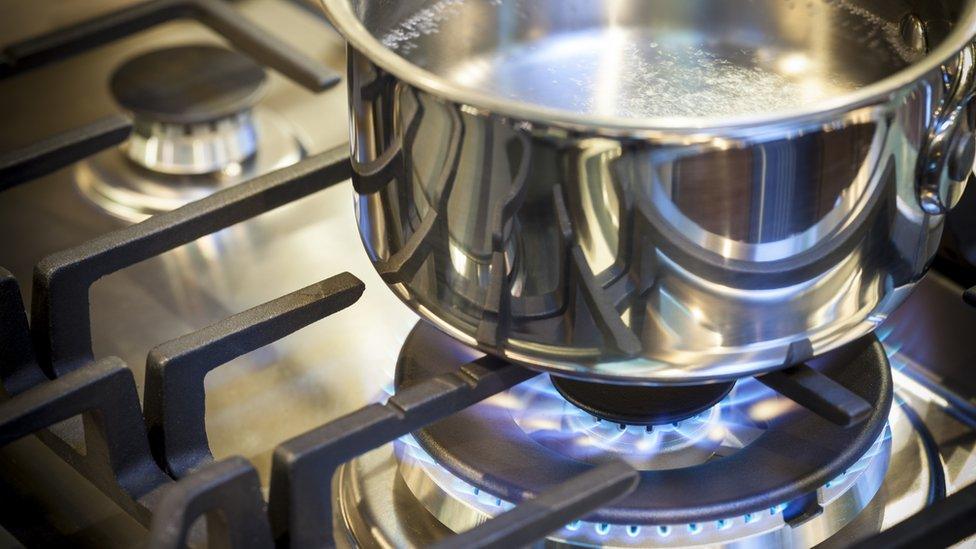
The name at the top of the gas bill might be changing for a lot of consumers in the coming years
Scottish Hydro enjoys strong loyalty from customers, and for good reason. But that may have been part of the problem which led to the retail division's half billion pound sale to Ovo.
SSE could foresee that supplying homes with power is going to become a lot more complex and specialised, and prefers to put its capital into wind turbines.
It reflects the second of two big shifts in strategy for energy utilities over the past decade, and more change to come.
It's best not to get sentimental about companies and brands.
Even the people who build them often have to set them free, for another owner to take them on, to fold them in to something bigger, or to see them fail.
Scottish Hydro, however, does carry special loyalties.
So its sale to Ovo, a Bristol-based newcomer to the energy market, could be a strain to those who have stuck by it, even when its tariffs have soared.
The brand was fading anyway. SSE has used it in Scotland, just as it uses Southern Electric for those in south central England, who were also loyal to the old utility that supplied their electricity in the days of state-ownership.
Both are still visible on customer bills. SSE Hydro is the brand on a large space ship-shaped music venue in Glasgow, which forms a prominent part of my view as I type.
But beyond that, SSE has been letting them slip away. You won't see much of them on the website.
Turnaround
SSE was, itself, another brand - Scottish and Southern Energy - until it fell to the fashion for three-letter combos. And before that, it inherited the Hydro brand from the North of Scotland Hydro-Electric Board.
It was in that form that it earned a special place in the hearts of a lot of older Scots.
This was the state-owned entity that literally changed the map of the Highlands. It brought people and power to the glens. And in the 1950s, their pouring of cement into new dams, and digging of tunnels, was the starting point for the turnaround of the Highlands from depopulation and economic decline.
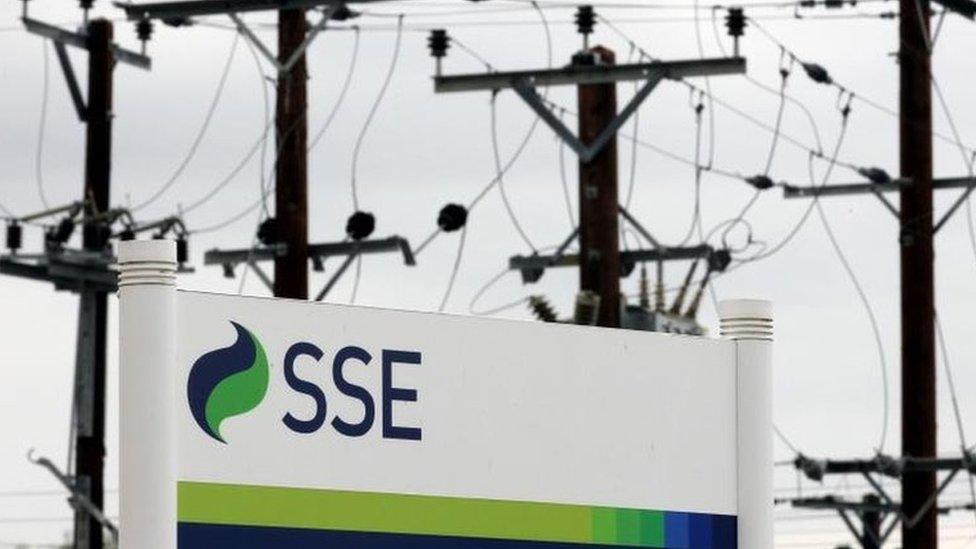
SSE - one of the Big Six energy suppliers - has 3.5 million customers and 8,000 staff
For the next generation, Scottish Hydro-Electric was the shop in Highland communities that opened the door to white goods, at a time when the reach of commercial retailers stopped far short of rural Scotland.
And so it remained until 2016, when SSE announced it was closing the last 37 shops, from Lerwick to Campbeltown, via Lochboisdale, Bowmore, Portree, Banff and Stonehaven as well as Aberdeen and Dundee. Footfall had fallen and shopping habits changed, as other options became available (albeit some of them at eye-watering delivery costs).
Russian gas
That brand loyalty may have been part of the undoing of the business. Scots have been more loyal to the legacy companies from those state-owned days than others in the British energy market. That goes for Scottish Power too (formerly South of Scotland Electricity Board, or SSEB).
Those who had always been with Scottish Hydro stayed with it, even as their bills rose on the standard variable tariff. Its business model was more dependent than most on those more profitable customers. So when the UK government and regulator Ofgem stepped in with a cap on the variable tariff, it hit SSE particularly hard.
That was the problem - described as a "particularly challenging market" - that scuppered its planned merger of the retail division with nPower, falling apart last December, and starting a new search for a way of offloading nearly four million customers. Over that time, the number of customers has been falling quite fast, so it now stands at around 3.5 million.
There was a time, not long ago, that it would make sense to re-invest and re-invigorate the retail arm of SSE. When the Russians cut off gas to its neighbours in south-east Europe 10 years ago, energy utilities moved swiftly to secure upstream resource.
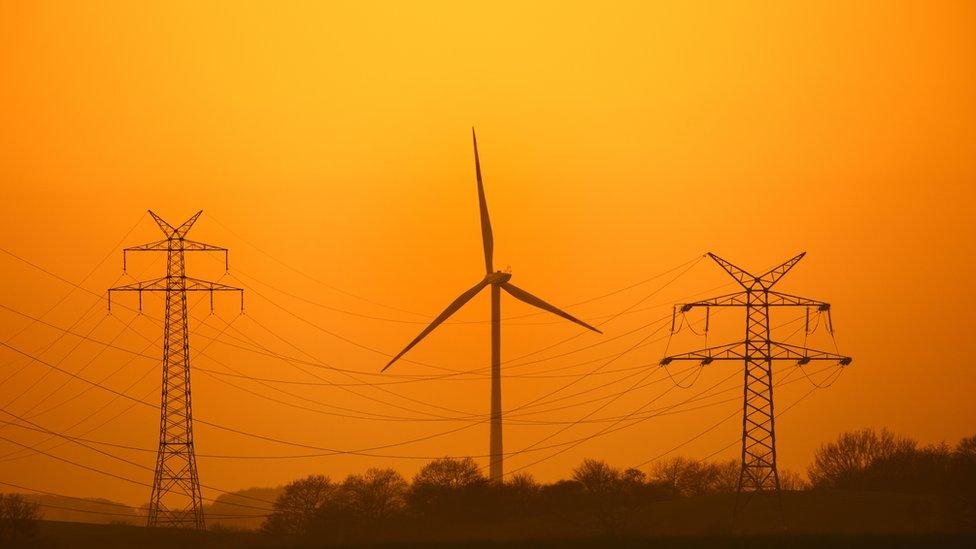
The deal with Ovo is expected to be completed in late 2019 or early 2020, leaving SSE to concentrate on other areas such as renewable energy
A full, vertically integrated model - from offshore gas field and nuclear power stations to servicing the household central heating boiler - seemed the way to go for the Big Six. Centrica (Scottish and British Gas) and EDF were among the most integrated with upstream investments in oil and gas.
But in a fast-changing energy market, that model has changed. That may be a sign of more mature and settled markets.
The politics of depending on Russia's gas pipelines remains a very hot issue in central and eastern Europe. But a lot has happened to reduce western European dependence on Russian gas, including development of LNG, liquified natural gas, shipped in by tanker from Qatar and the Gulf of Mexico. Meanwhile, those who bought upstream oil and gas assets were stung by the downturn in prices.
Guessing and hedging
At the household end, there's a revolution which has barely begun. The rollout of smart meters is the starting point for a data-driven shift to more dynamic pricing. Instead of one tariff for all the power you use at any time of day, there are already some off-peak tariffs, aimed at those charging their electric cars overnight.
More flexible metering will lead to fluctuating prices, increasing the incentive to use energy when it's cheapest. And in a two-way market, increasing numbers of households will be able to sell excess energy - from solar panels and tiles, for instance - into the national grid, or into local grids.
That requires investment in the software and an understanding of how best to use data. And in turn, that looks like becoming a differentiator between companies, instead of the game of chance that has been the main difference between energy suppliers - hedging on guesses about the future direction of wholesale prices.
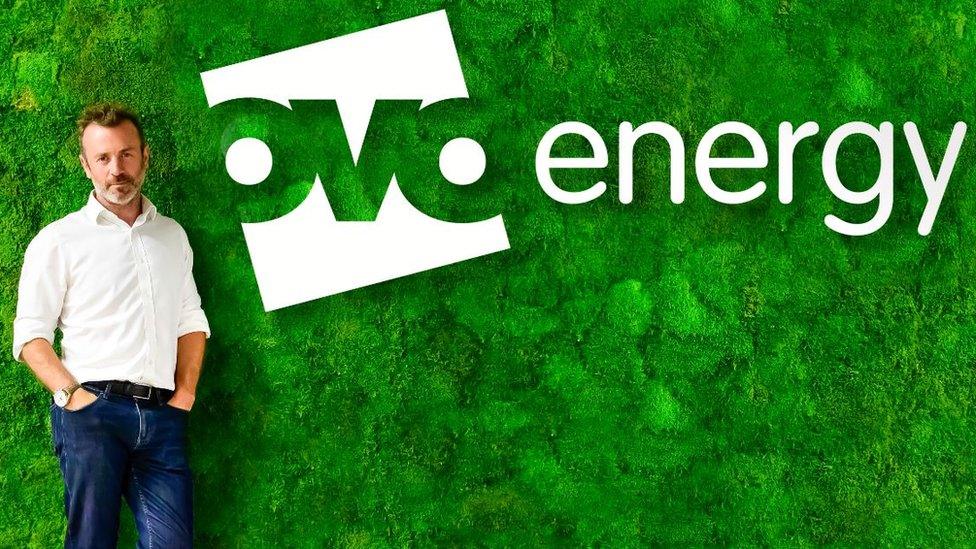
Ovo chief Stephen Fitzpatrick said the two business were a "great fit"
Others have made different choices. Scottish Power sold and closed generating assets to focus on renewable generation, and does so with a reach across Europe and around the world through its Spanish parent company, Iberdrola.
That scale should help it invest the transition towards the new, smart-metered, data-driven retail landscape. The Glasgow-based utility is also pushing ahead with the transition to cabling up for electric vehicles.
David Hunter, the energy sage at Schneider Electric who often guides us through these issues on the airwaves, points out another factor to me - that the legacy utilities carry legacy burdens, of high levels of staffing and the pension schemes to match. That is another area where it's hard to compete, with firms such as Ovo, Octopus and Bulb.
For the 8000 staff transferring from SSE to Ovo, there has to be some concern that a new employer may have different ideas about how to run the company with less of the legacy and more efficiency. SSE is making up some of the pension deficit, but not retaining the liability.
Leaner operation
In the short term, the challenge lies with Ovo management. This increases the firm's customer base more than threefold. We've seen that there's a high risk of IT systems coming unstuck in managing such large numbers, and even more so in the transition between IT systems. The regulator, Ofgem, comes down harshly on slip-ups in customer service.
Other recent start-ups (Ovo began only 10 years ago) have foundered in alarming numbers, as they have failed to handle the costs of this highly regulated environment. At least a dozen suppliers have folded this year alone. Ofgem has handed their customers to larger companies, including Ovo.
For SSE, meanwhile, return on capital looks more promising in the business of planning, building, operating and farming out stakes in in wind farms, both on and offshore. It is also experienced and more profitable in managing the distribution cables that link generators to customers.
So on that basis, one of Scotland's biggest businesses becomes a much leaner operation, with less clout in the economy.
It is licensing the SSE brand to Ovo "in the meantime". A transition will surely follow.
What happens to Hydro loyalty? That's up to customers - perhaps, including you.
- Published13 September 2019
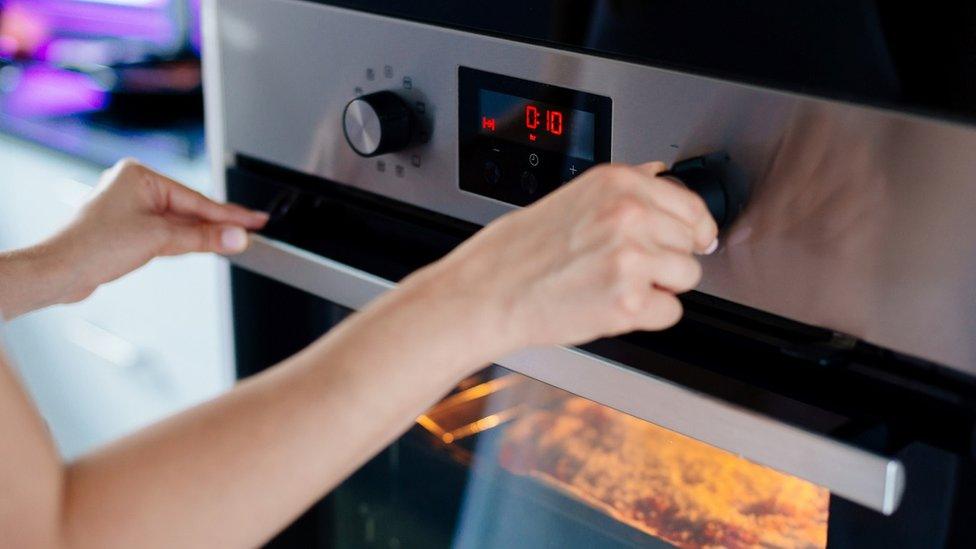
- Published8 May 2013
